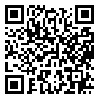BibTeX | RIS | EndNote | Medlars | ProCite | Reference Manager | RefWorks
Send citation to:
URL: http://jdc.tums.ac.ir/article-1-5617-en.html
Background and Aim: Distance E-learning has been proved as an efficient modality of learning in medical education. Use of “social media” for e-learning is an emerging issue in medical education. There is no study about WhatsApp in the medical education literature from Iran. To determine the effectiveness of the WhatsApp application, for dermatology education to 6th year medical students (interns).
Methods: This research is a quasi-experimental study. Every month a WhatsApp group was created by mentor as group administrator and all interns joined the group as members. Various cases of Common skin diseases were presented by mentor in the group and using educational method of question and answer, mentor helped Interns to make the correct diagnosis. At the end of 30 days teaching practice schedule, a questionnaire was distributed among the interns and their feedbacks regarding their experience in the group, were gathered.
Results: Over a 6-month period, A total of 61 people were included in the study. an average of 50 cases per month were discussed. 97%of the participants were satisfied of using WhatsApp for dermatology education and majority of them found the discussions very useful in improving interpersonal relationship and improving their ability to diagnose real dermatology cases.
Conclusion: This study showed that WhatsApp is a suitable tool for teaching dermatology to interns, and the increasing use of this tool will help improving medical education.
Received: 2022/12/20 | Accepted: 2022/11/6 | Published: 2022/11/6
| Rights and permissions | |
 |
This work is licensed under a Creative Commons Attribution-NonCommercial 4.0 International License. |






